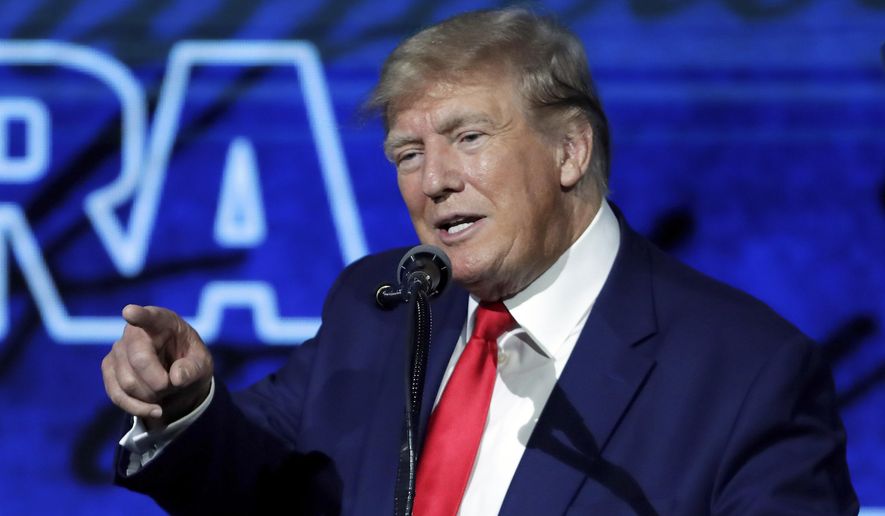OPINION:
If the House Jan. 6 committee proceeds to its seemingly predetermined conclusion that former President Donald Trump incited the Capitol riot and tried to reverse the results of the 2020 election, and if they recommend to the Department of Justice that Mr. Trump committed criminal acts and should be prosecuted, President Biden will face a serious choice.
Mr. Biden, who promised to unite the country, but who most Republicans believe contributed to its division, could either allow the prosecution of the former president to proceed or travel the high road taken by President Gerald Ford when he pardoned Richard Nixon for acts associated with the Watergate scandal. If Mr. Biden chooses the former, the division will likely widen to a chasm not to be repaired for years to come. If he chooses to follow Mr. Ford’s example, he would arouse the ire of progressives, but might avoid the specter I doubt most rational Americans would wish to see — a former president in court and possibly in prison. Perhaps a deal could be struck. In exchange for a pardon, Mr. Trump would agree not to run for president again.
It would be difficult for any prosecutor to convince a jury (except in heavily Democratic Washington) that Mr. Trump caused the riot by his language. In a sound bite played by the committee, it is true that Mr. Trump did urge protesters to go down to the Capitol. True, he seemed to agree with the sign brought by one protester that said, “Hang Mike Pence,” but that is different from giving the order.
One can be disgusted by Mr. Trump’s behavior and failure even now to accept the results of the 2020 election — I am — and still not want to see a precedent set that leads to the trial, conviction and imprisonment of a former president. Not only would this add fuel to the political forest fire that is already consuming the country, but it would also encourage some Republicans to do the same to a future Democratic president. Impeachment and indictments would become a norm, not an exception.
We’ve all heard people say, “no one is above the law,” but practically that is not true. There is a two-tier justice system: one for Black people and one for white; one for those who can afford expensive lawyers and one for those who can’t; one for legal immigrants and one for those who break the law to cross our borders; one for current and former high government officials and one for the rest of us; one for the well-connected and one for the disconnected.
Those rioters who broke the law on Jan. 6, 2021, are being held accountable. More than 800 have been formally charged with criminal offenses and some have gone to prison. Others await court dates. The FBI estimates that more than 2,000 people may have been involved in the attack that day.
During the 1968 campaign, there supposedly was a teenager in Ohio who held a sign as President Richard Nixon’s motorcade passed by. It said, “Bring Us Together.” Nixon speechwriter and later New York Times columnist William Safire said he doubted the sign ever existed, but the phrase made it into the Nixon campaign. Then, and now, it is a worthy sentiment, but an unreachable goal as both parties can’t agree on our problems, much less how best to solve them.
Mr. Trump would do well to withdraw from the field and allow younger and less controversial candidates to replace him. His record of policy successes while president are undeniable (except for those in denial), but his narcissistic personality contributed to his loss. It is also contributing to the work of the Jan. 6 committee. If that committee wishes to “bring us together,” it will forgo recommendations of criminal prosecution and let voters decide, as they should and ultimately will, the future of Mr. Trump.
• Readers may email Cal Thomas at tcaeditors@tribpub.com. Look for Cal Thomas’ latest book “America’s Expiration Date: The Fall of Empires and Superpowers and the Future of the United States” (HarperCollins/Zondervan).




Please read our comment policy before commenting.